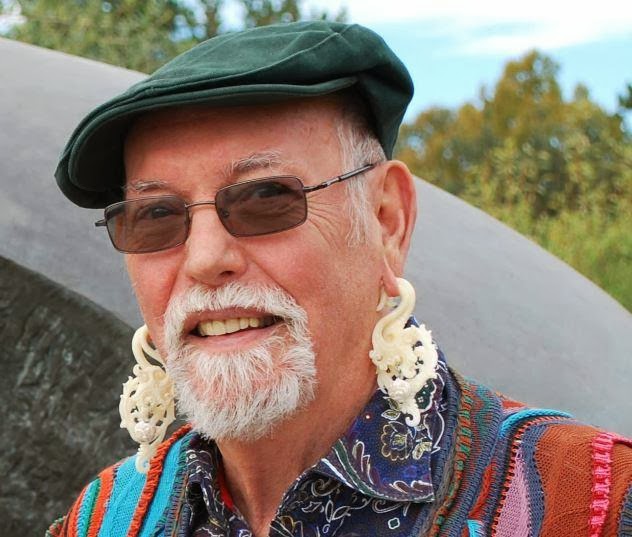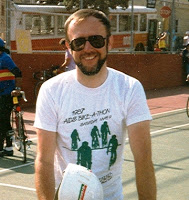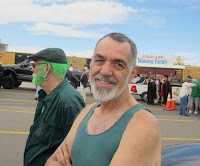Off and on in the past, I attempted to do some writing. The stories were probably OK but I never did anything with them. They may be in some notebook that I will never open again. My spelling was atrocious and I printed so that even I might be able to read it. I didn’t use the dictionary until more recently and then along with the arrival of Merlyn there is a computer and spell-check.
About four and a half years ago I started attending the men’s coffee at the GLBT Center when it was still on Broadway. When I found out that Jackie, Ken’s intern with the SAGE program was doing a “Telling your story” group, I decided to attend. At first I did a couple of oral reports based on the topic. Then I decided to write the stories. It seems that no matter what the topic was, some suppressed memory, baggage of the past would appear. I would choke up. I had no idea how much childhood pain I had hidden from myself. I’m sure it is a form of self-protection to ignore unpleasant and traumatic experiences so we can continue on. Having been unable to resolve the situation and not having the skills to confront those family members that I depended on, I tried to ignore all unpleasantness. Some things that nearly brought on tears and caused me to feel like I was falling apart had been forgotten for well over 60 years.
Within a few weeks of these emotional breakdowns, I realized that I started feeling a resolve, a freedom, an understanding. I recognized that as a child I could not possibly have known how to be perfect, wise, in control, etc.
As time went on I had less and less flashbacks. I had a new freedom and was realizing that for me to really be comfortable with myself I had to discover my own truths, my now unencumbered potentials. I needed to examine what I wanted to do with my life all over again. I no longer had the old encumbered paradigm of how to be. I could more freely create a future that is based on my wishes and desires, hopes and dreams, freed from outside limitations and expectations.
This new awareness allowed for subtle changes, no dramatic or immediately recognizable differences. Mostly I could be without guilt or self-doubt. I could say “No” without getting emotional. And interestingly enough, I could have critical thoughts and not feel I had to say anything or sense regret. I could just keep them to myself or I could, if I so desired, raise a stink or attempt to change things without the accompanying embarrassment.
Now what happens when I write is that I have little concern what other people think. I seldom get emotional and I find that writing is a fantastic tool for more self-discovery, for a kind of inner growth and allows me to critically examine what I think and feel in areas that I’ve previously given no thought to. I am very thankful for “Story Time”. Writing has opened many doors and has come to be something to look forward to each week. It also is an activity that Merlyn and I do at the same time and share with each other before we come to the group. I’m so glad we got Phil to take charge and build the program that Jackie started. I think it is one of the best programs at the GLBT Center and that seems to be the opinion of all the regular participants. It has been not only an activity for personal gratification but an environment where we have developed friendships, better understanding of one another and we get insights from the disclosures that can only be made in such a loving and trusting group.
About the Author
I go by the drag name, Queen Anne Tique. My real name is Michael King. I am a gay activist who finally came out of the closet at age 70. I live with my lover, Merlyn, in downtown Denver, Colorado. I was married twice, have 3 daughters, 5 grandchildren and a great grandson. Besides volunteering at the GLBT Center and doing the SAGE activities, “Telling your Story,” “Men’s Coffee” and the “Open Art Studio.” I am active in Prime Timers and Front Rangers. I now get to do many of the activities that I had hoped to do when I retired; traveling, writing, painting, doing sculpture, cooking and drag.




